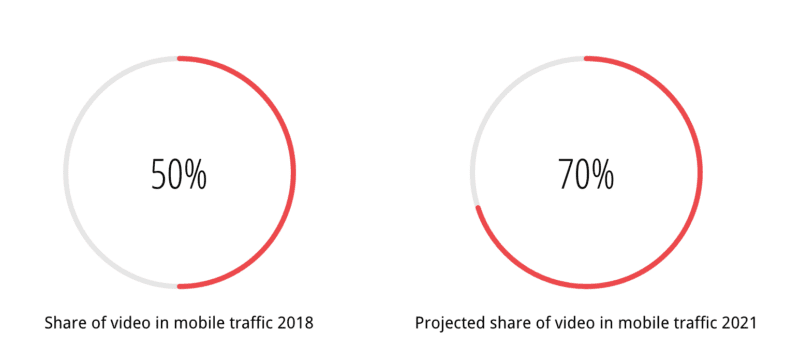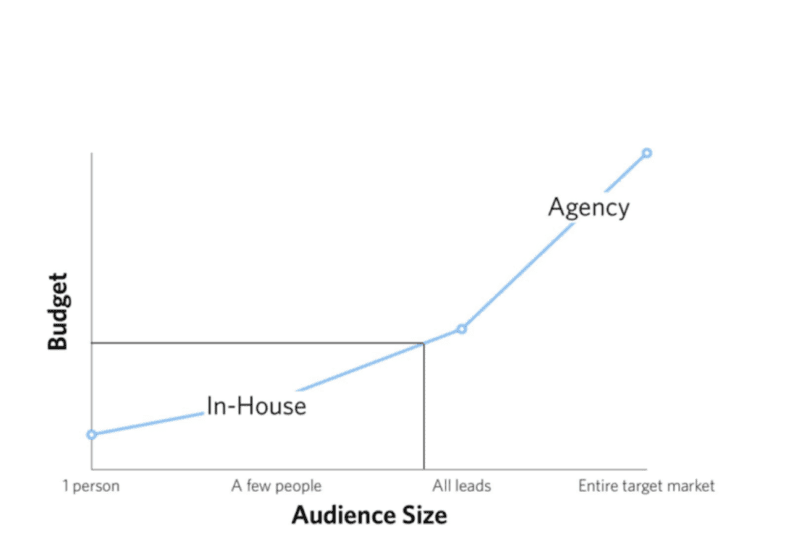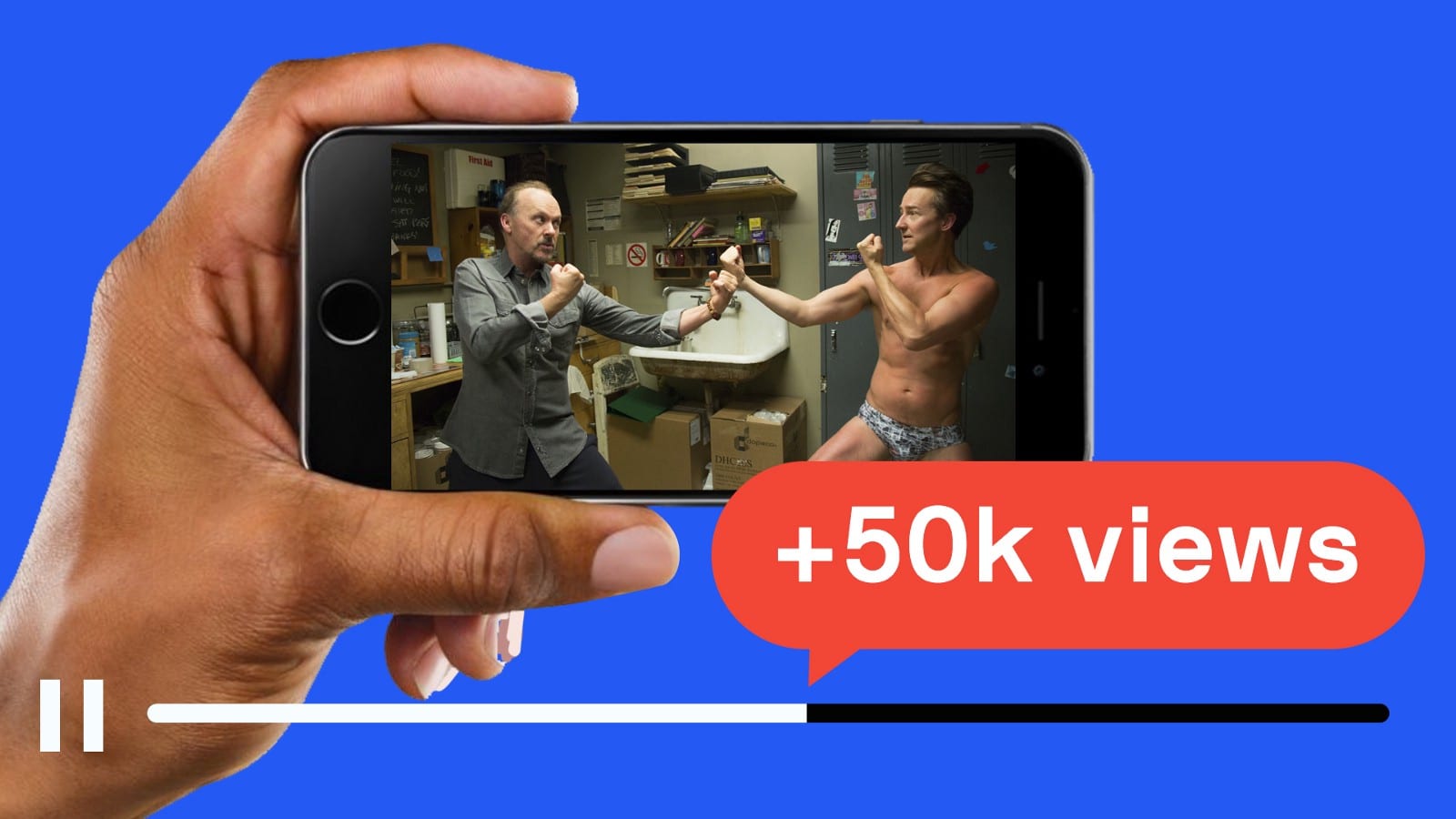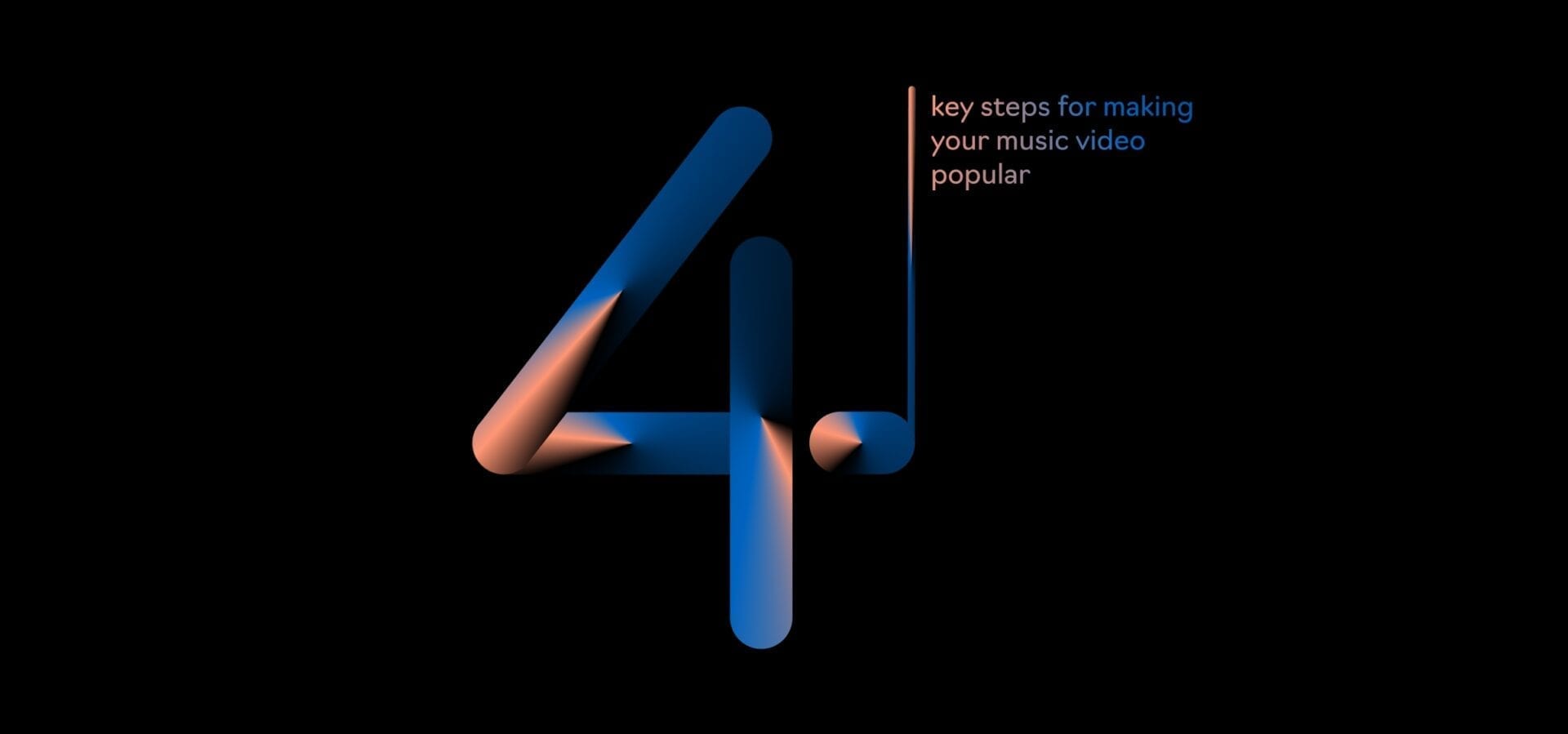Video content marketing is an evolutionary step forward from conventional online marketing that relied on banners and texts. Driven not just by advancements in mobile data transfer and the widespread availability of broadband Internet access, but also by understanding the tastes of today’s users, this new trend offers a wealth of opportunities for any business with online presence.
Let’s throw in some numbers to support the argument. Hubspot says that 52% of users want to see videos from their favorite brands more than any other materials. Videos generate over 1200% (no typo here) more shares than articles or social media posts made up of text and images. Finally, according to a fairly recent and unquestionably trustworthy research by Cisco, video traffic will account for about 82% of all Internet traffic as soon as 2021. There is no need to wait for two more years to verify this forecast — the video content trend is already happening and picking up the pace.
How can you, as a business, become a part of this transformation, stay ahead of the curve, and ultimately succeed? The answer is surprisingly simple — you’ve got to have a well thought-out strategy. In many occasions, it’s more important than your senior management’s approval of the marketing budget and a general good-to-go from your organization. Let’s take a look at this fundamental element of your video content marketing initiative.
Do you even have a strategy?
Now that we’ve identified the need for video content marketing to be a part of your long-term business plan, you need to think about the steps to be taken for it to start yielding tangible value for your business. In other words, you can’t go berserk with your videos or produce a brilliant one-off reel, you need a strategy to stick to.
An effective strategy establishes a certain cadence of production cycles, sending just the right signals to your audiences at the right time, and adjusts according to the feedback and KPI’s you collect. In addition, aiming for the long haul helps establish a lasting relationship with your TA that starts perceiving your videos as part of the customer journey. The more powerful and memorable your campaigns, the stronger your customers’ associations between their positive experience and your company.
So what are the ingredients of a good strategy? What goals does it pursue?

What are you trying to achieve with your strategy?
Your video content marketing strategy must address the so-called five Ws:
Who — you want your videos to reach and win the hearts and minds of your target user group(s). Making a sharp presentation for B2B sales or an executive pitch is very different from filming a 30-second, fun-packed video for social networks. Therefore, it is extremely important to plan your communication strategy in advance, identify your TA, their needs and preferences.
What — arguably the most important part. Regardless of your TA, your videos must tell a STORY. People are much more likely to watch a meaningful, relatable video to the end even if the quality isn’t perfect. On the opposite, bland and sterile commercials will have a zero chance of being appreciated by the public, no matter how amazing they are in terms of execution.
When — the key here is consistency. A brilliant one-off video may put you on the radar for a little while, but if you are after increasing brand awareness and expanding your user base, you may want to consider a series of videos bound by a single concept and delivering the same message.
Where — a very important aspect of your marketing strategy. We will cover it a bit later in the article, but the general idea is that you no longer can produce a one-size-fits-all video. Depending on your distribution channels and your TA, your videos may have to be adapted to multiple video formats in terms of duration, aspect ratio, resolution, file size, and other parameters.
Why — the goal of your video marketing campaign. Do you want to generate more traffic to your landing pages or to increase conversion? Or maybe boost brand awareness or customer loyalty? You need to answer these questions before you proceed.
Where will your content be published and when?

The designated set of video distribution platforms defines the formats that you’ll be working with. For example, YouTube is better for long, high-resolution explainer and how-to videos demonstrating your product or service in detail. Being the 2nd largest search engine (after Google) today, YouTube emphasizes the importance of good SEO as one of the major factors of your success.
Other platforms, such as Instagram/IGTV, Telegram or Facebook, require a different approach: vertical video orientation, subtitles, shorter duration, and such. Therefore, your video production efforts will directly depend on your target platforms and audiences.
Who is going to execute your strategy? agency vs in-house
Let’s assume that you’ve reached a consensus regarding how you are going to execute your video marketing strategy, so it’s time to get the ball rolling. As always, you have two options: DIY or outsourcing to a reliable vendor. Apparently, your decision will ultimately depend on the specifics of your case and your needs, but you should opt for effectiveness and quality of work in the first turn, not a potentially huge PR factor or big names.
Use common sense here and choose the option that guarantees better results with minimal hassle. The answer to this dilemma is simple: unless you have a capable in-house video production team, it makes perfect sense to entrust your digital video marketing to professionals who have been in the business for years.

What are you going to show to the world and how will you gauge your success?
Publishing is one thing, measuring the produced effect is another one. How do you know that your content is delivered to the right audience and produces the desired effect?
Any marketing strategy implies ongoing monitoring and measurement of the key metrics defining its effectiveness. Make sure you have the right tools in place to collect meaningful data, draw conclusions from it, and adjust your content accordingly for a wider outreach, more followers, more targeted traffic, better conversions, and other improvements. In other words, video production is an ongoing, never-ending process, not a one-time gig.
How are you going to utilize your video content?
Publishing your content once is great, but you want to benefit from it in the long run. You need a plan for putting your content to good use long after the initial publishing. Your videos form a story around your brand, so the more content you have, the deeper and wider your searchable history becomes.
Depending on your strategic goals, you may want to distribute your content in different ways:
- Using organic SEO promotion
- Using paid promotion and seeding
- Using social ads and YouTube ads
- By targeting niche communities
- By coming up with hybrid approaches
Don’t know how to start?
As a startup making its first steps with startup marketing or an established company with no experience in video production, you may not want to take your first deep dive into the matter all on your own.
Slon Media is an end-to-end video production house that specializes in video marketing in all of its shapes and forms. At the very minimum, we can help you achieve the following:
- Expand your user base
- Achieve higher conversion and ROI
- Showcase your product or service
- Educate your viewers about the best way of using your products
- Help you with a beautiful investor pitch
- Get tangible benefits from content marketing
- Stand out from the crowd of competitors
We use the most advanced tools for video production and video distribution to help you stay ahead of the race. We create videos that deliver powerful messages to audiences around the globe. We’ve helped many businesses jump-start their digital video marketing campaigns and will be delighted to see you join our happy customers’ club.
Let’s get in touch now and discuss how our knowledge and skills can transform into your brand new video marketing campaign!


